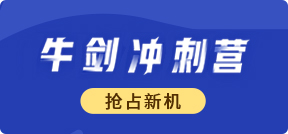Alevel辅导:小论Alevel物理与国内物理课程的区别

物理学大体包含了力学、电磁、波、热学、基本粒子、相对论和量子物理等几个大部分(Physics generally includes mechanics, electromagnetism, waves, heat, elementary particles, relativity and quantum physics),不同国家的物理课程内容大体上是差不多的,但是在具体的教育理念、考核方式上,却各不相同,下文列举了几点Alevel物理和中国普通高中物理课程的区别。
第一点,知识覆盖面
国内高中的物理教育更加侧重于力学与电学,其他方面则涉及不多(Physics education in senior high schools in China focuses more on mechanics and electricity, while other aspects are not much involved),因为这两个部分的量化公式结论比较多,更容易出计算题来考核,题目的难度整体较大。
而Alevel的物理学涵盖的范围比较广,其中包括general physics(普通物理)、newtonian mechanics(牛顿力学)、matter(物质)、 oscillations and waves(振动和波)、electricity and magnetism(电和磁)、modern physics(现代物理)、applications of physics(应用物理)等几个大的板块。涉及的知识面远大于国内高中课程,甚至还包括了一部分高校的物理知识。
第二点,教学思路
Alevel的物理教学重视对理论的发展和反思,风格上偏理论物理,考核上注重对定义和理论的解释(The style is partial to theoretical physics, and the examination pays attention to the explanation of definition and theory),充分阐述一个理论成立的前提,说明某些特定理论的缺陷,引导学生用开放、反思的思路来学习物理。而对于复杂特定情形的应用问题(我们所谓的难题),则要求不高,更加注重物理理念的灌输。学生在这种教育下对于物理学的世界观和方法论会有更深刻的认识(Under this kind of education, students will have a deeper understanding of the world outlook and methodology of physics),理性的思维方式也会得到培养。
国内课程的物理教育,思路类似于Alevel课程中的Mechanics。注重难题的计算,基本不涉及理论搭建的问题,基本不引导学生对理论进行反思(Pay attention to the calculation of difficult problems, basically do not involve the problem of theoretical construction, and basically do not guide students to reflect on the theory),我个人认为国内课程在对于物理理念的培养这方面是比较缺失的,学生会算很难的题目,但是对物理的理解却常常肤浅(Domestic courses are relatively lacking in the cultivation of physics concepts. Students will be difficult topics, but their understanding of physics is often superficial),这种教育下培养的学生常常不知道某些物理量的定义,不懂定律和公式的区别(所有书上的等式都被叫做公式),不知道很多结论的成立前提和自身缺陷。
第三点,对实验的要求
国内物理考试的试卷中也有几道实验题,但那是用笔来答的(There are also several experimental questions in the domestic physics examination paper, but they are answered with a pen),不是亲手做的,即便是实验题,关注的也是结果而不是探索。
Alevel物理有一套实验理论内容,传授关于测量、不确定度、数据分析、实验设计等内容(Alevel physics has a set of experimental theoretical contents, which teach about measurement, uncertainty, data analysis, experimental design and so on),在考试中专门有一份卷考实验,学生亲自动手根据题目的要求做实验并获得数据,得出结论,这个过程充分模拟了人类在探索未知事物时所经历的历程。这种实验考试试卷通常会围绕两个量之间的关系来展开(This kind of experimental test paper usually focuses on the relationship between the two quantities),比如矿泉水瓶子的侧倒与倾斜角度之间的关系,比如弹簧的震动周期与弹簧体积的关系等。在考试中,学生被要求根据自己的测量数据得出自己的结论(Students were asked to draw their own conclusions based on their own measurement data),两个学生即便得出了完全相反的结论但都有可能得到分数。这体现了这种考试关注的是学生怎样做了而不是做出了什么。
不仅如此,考试还要求考生对该实验作出评判,比如要求考生写出这个实验的设计有哪些不足(The test also requires candidates to judge the experiment, such as writing down the shortcomings of the design of the experiment),有哪些地方需要改进等等。
中国的学生走向世界,往往以聪明著称。但是中国教育近几十年来,没有培养出学术领域的泰斗级人物(However, in recent decades, Chinese education has not cultivated leading figures in the academic field),应该说和国内教育的种种缺陷是不无关系的。
“Alevel辅导:小论Alevel物理与国内物理课程的区别”本次分享到这里就结束了,同学们下次再见啦!






